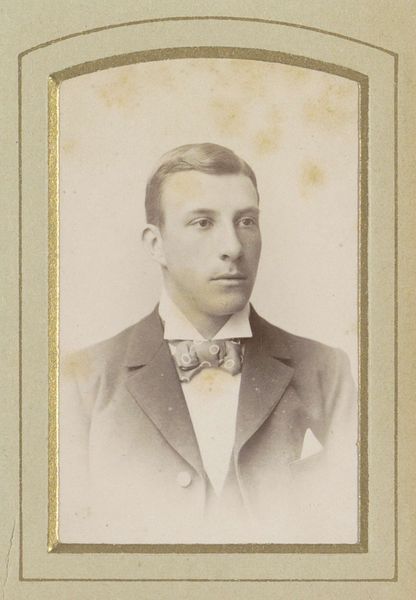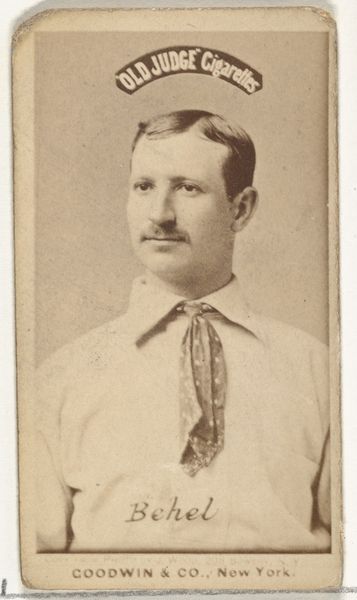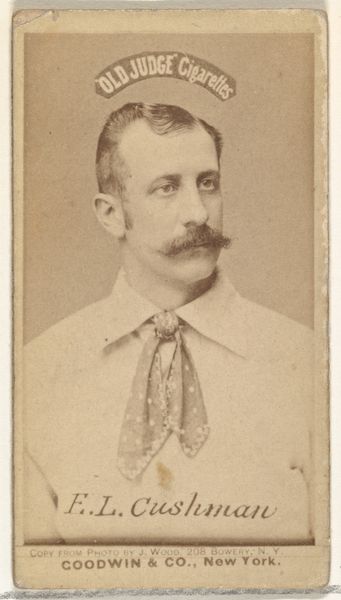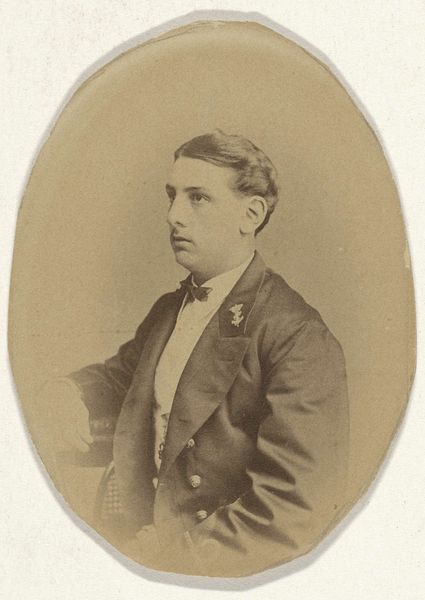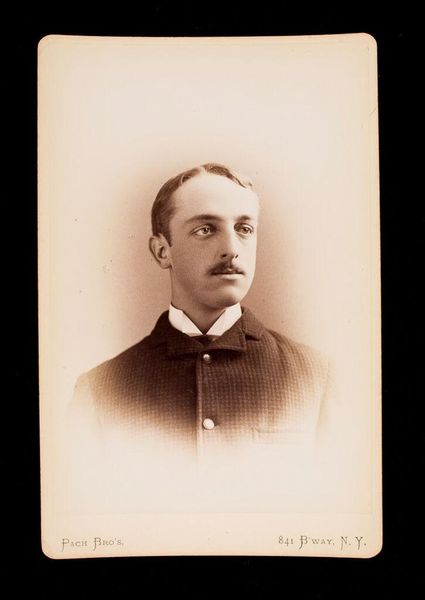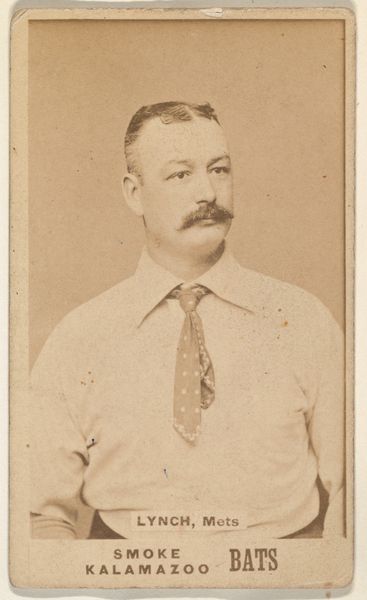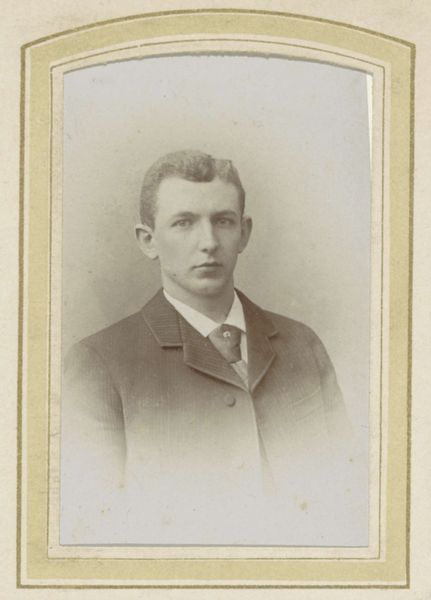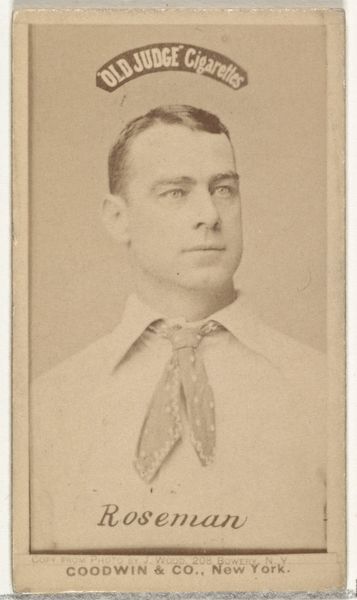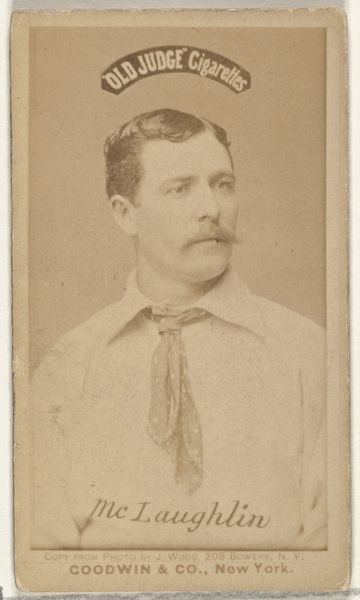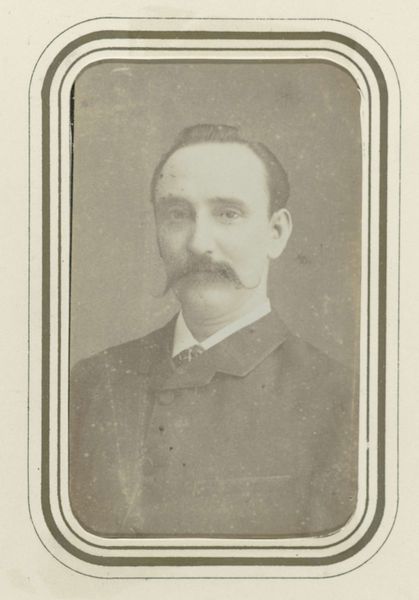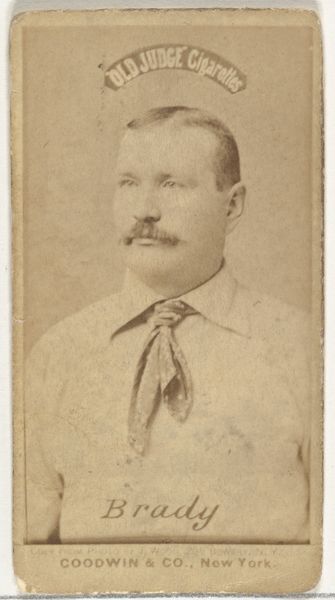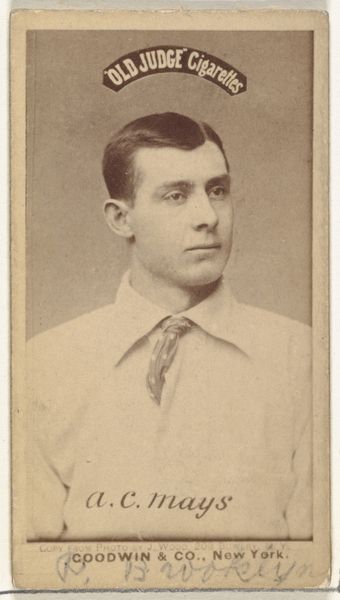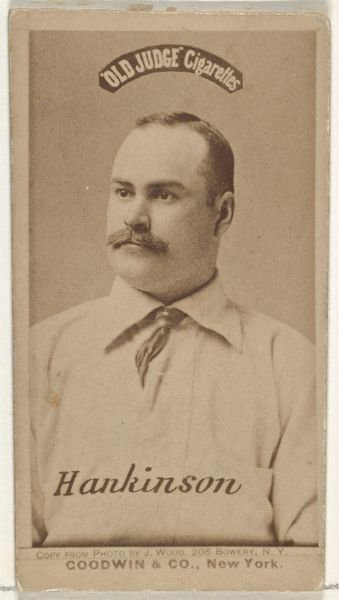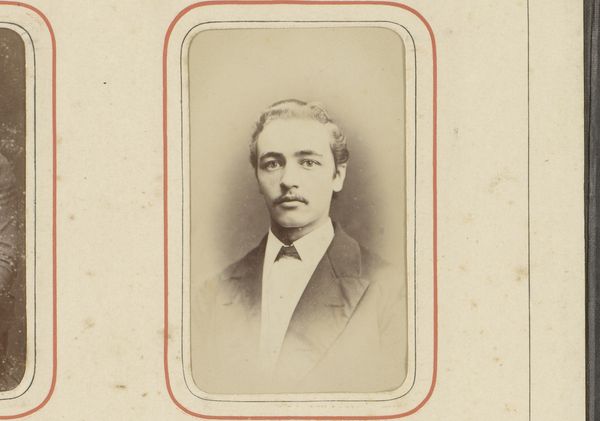
F.W. Foster, from the Old Judge series (N172) for Old Judge Cigarettes 1887 - 1890
0:00
0:00
drawing, print, photography, albumen-print
#
portrait
#
drawing
#
toned paper
#
16_19th-century
#
photo restoration
# print
#
old engraving style
#
baseball
#
photography
#
19th century
#
men
#
portrait drawing
#
albumen-print
#
realism
Dimensions: sheet: 2 11/16 x 1 3/8 in. (6.9 x 3.5 cm)
Copyright: Public Domain
Curator: What a find! This albumen print, produced by Goodwin & Company between 1887 and 1890, is from the "Old Judge" series, specifically featuring F.W. Foster. It's currently held at the Metropolitan Museum of Art. Editor: It has such a striking simplicity, almost ethereal in its sepia tones. There's a quietness, an almost haunting quality to the portrait that draws me in. He’s wearing a patterned neckerchief, quite distinctive for what's essentially an advertisement. Curator: Exactly, those "Old Judge Cigarettes" trade cards offered a form of early mass media imagery. This type of photograph, in its ubiquity, built a pantheon of baseball heroes, almost mythic figures through repeated circulation. The symbolic weight of sport cannot be ignored! Editor: But how complicit were these athletes in the promotion of something ultimately detrimental? Knowing now the severe health risks associated with cigarettes, it's difficult to separate the image from that context. It forces us to grapple with the ethics of advertisement and the romanticization of harmful products. Curator: An excellent point. Looking closer at Foster’s posture, though seemingly straightforward, does carry subtle undertones of dignity. It's the photographic style of the era, with its emphasis on clarity, on representing a public figure in a seemingly objective light. Objectivity itself carries so many burdens here. Editor: Perhaps it speaks to the normalization of tobacco use at the time. The cards weren't just promoting a product; they were contributing to a broader cultural narrative where smoking was associated with masculinity, leisure, and success. These cards really do need to be investigated under intersectional theory. Curator: They are very indicative of the epoch’s symbolic values. It speaks of health practices then deemed harmless but are understood differently in a contemporary context. The card creates tension, a paradox, a man and a product together carrying health concerns in absentia of recognition. Editor: In this little portrait of F.W. Foster, we have more than just an baseball figure in advertising; we are looking at a captured moment of societal value, reflecting both progress and harmful trends. Curator: Quite so. This image really showcases how potent even the most commercial images can become over time—carriers of cultural memory.
Comments
No comments
Be the first to comment and join the conversation on the ultimate creative platform.
